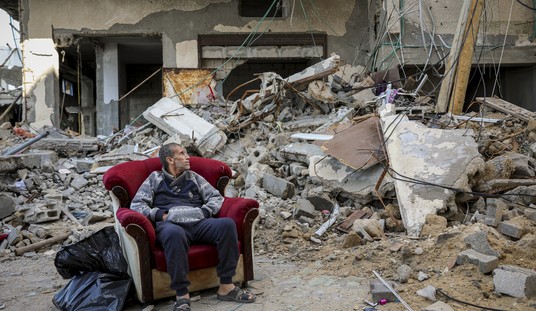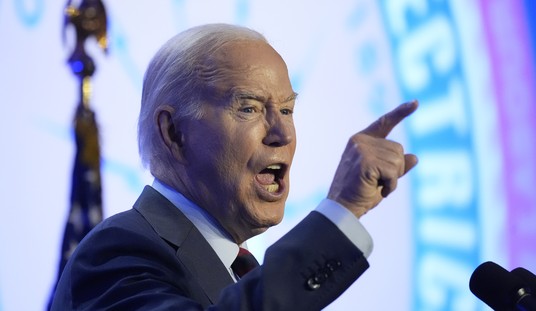
DC VA Medical Center. ©US Dept. of VA
Insider told you earlier this week that Secretary Shulkin had bad news coming, and today that news is beginning. And it’s not just about misusing government funds for personal travel. It’s about the care our veterans receive.
According to Insider’s sources, this is just the first bad news coming this week.
A 158-page report was released Wednesday by the VA internal watchdog outlining “critical deficiencies” at the Washignton DC VA Medical center, and it’s a bleak accounting of what was discussed in the preliminary report last year. A failure of leadership.
From the Executive Summary of the report:
In March 2017, in response to a confidential complaint, the Department of Veterans Affairs (VA) Office of Inspector General (OIG) deployed a Rapid Response Team to conduct an inspection of the Washington DC VA Medical Center (Medical Center). The OIG took the unusual step of issuing an Interim Report three weeks later that described serious conditions that put both patients and federal government assets at risk. The April 2017 Interim Report identified a number of significant deficiencies at the Medical Center, including the lack of accurate supply and equipment inventories that made it difficult to ensure patient needs were met, generally dirty conditions in clean/sterile storerooms, and millions of dollars in unaccounted for supplies and equipment.
The inspection continued and this final report details the overall findings and related recommendations. In summary, the OIG found that the Medical Center has for many years suffered a series of systemic and programmatic failures that made it challenging for healthcare
providers to consistently deliver timely and quality patient care. These breakdowns also heightened the potential for fraud, waste, and abuse of government resources.
There is a lot more here from Kimberly Ross on the truly shocking horrors revealed in the report.
This is a serious blow for Secretary Shulkin, who was Under Secretary of Veterans Affairs for Health during the Obama administration and later moved up to Secretary of the VA by President Trump. When the preliminary report was released, Shulkin claimed not to know about the major issues and also vowed to fix them.
From the AP:
Shulkin acknowledged to reporters that the problems were “systemic,” but said he was not aware of the issues at the Washington hospital. He pledged wide-scale change across the VA.
Painting a grim picture of communications breakdowns, chaos and spending waste at the government’s second largest department, the report found that at least three VA program offices directly under Shulkin’s watch knew of “serious, persistent deficiencies” when he was VA undersecretary of health from 2015 to 2016. But it stopped short of saying whether he was told about them.
Shulkin, who was elevated to VA secretary last year by President Donald Trump, told government investigators that he did “not recall” ever being notified of problems.
The report specifically addresses the issue of accountability, and specifically ties it directly to Secretary Shulkin.
With respect to the managerial and administrative deficiencies at the Medical Center outlined in this report, at least three Program Offices—the Office of Network Support,157 NPOSP, and the VHA Procurement and Logistics Office—had information sufficient to inform the Under Secretary for Health (USH) that serious, persistent deficiencies existed within the Medical Center that could potentially impact patient care. In a 2017 interview with OIG staff, VA Secretary David Shulkin indicated that when he was the USH from March 2015 to February 2017, he expected significant issues involving patient harm or operational deficiencies to be raised through the “usual” communication process.158 Secretary Shulkin told interviewers he does not recall senior leaders’ bringing issues at the Medical Center relating to supplies, instruments, and equipment to his attention while he was the USH.
That is government language, carefully avoiding saying specifically “he knew” while outlining that by the internal workings of the Department, he definitely should have known.
There’s even a chart.

If it’s not clear, the man at the top of that chart is David Shulkin.
And here are some of the findings from the report. Keep in mind, it is 158 pages long, so this is merely a sample:
The OIG found widespread and formidable inadequacies in many essential functions at the Medical Center that contributed to the deficiencies described in this report, including
- The inability to consistently provide supplies, equipment, and instruments to patient care areas when needed;
- Ineffective sterile processing contributing to delays or postponements of procedures due to unavailable usable instruments;
- The lack of consistently clean storage areas for medical supplies and equipment;
- The failure to accurately and consistently track and trend patient safety events;
- Excessive vacancies in leadership positions and other pervasive staffing issues across multiple departments, including Logistics, Prosthetics, Sterile Processing, and Environmental Management Services;
- More than 10,000 open and pending prosthetic and sensory aid consults as of March 31, 2017, causing some patients to wait months for needed items;
- Financial and inventory systems producing inadequate data, lacking effective internal controls, and yielding no assurances that funds were appropriately expended;
- Approximately $92 million in supplies and equipment being charged to purchase cards over a two-year period without proper controls to ensure the purchases were necessary and cost-effective;
- Underutilization of the prime vendor contract that was designed to purchase supplies at more favorable prices;
- More than 500,000 noninventoried items maintained in an inadequately secured warehouse; and
- Patient protected health information (PHI) and personally identifiable information (PII) stored in unsecured areas
No deaths were attributed to deficiencies in the report, but that does not mean it is not blistering and upsetting.
“Failed leadership at multiple levels within VA put patients and assets at the DC VA Medical Center at unnecessary risk and resulted in a breakdown of core services,” Missal said. “It created a climate of complacency … That there was no finding of patient harm was largely due to the efforts of many dedicated health care providers that overcame service deficiencies to ensure patients received needed care.”
Secretary Shulkin, then Under Secretary Shulkin, was the leadership at the VA overseeing the health of Veterans in the care of this nation. The damning report is a detailed and devastating overview of the failure of leadership. While a few improvements have been made, this report is incredibly bad for him. Considering the other news, the misuse of funds, the Republicans calling for his firing, and the distancing of the administration on Monday by Press Secretary Sanders, it’s safe to say that the Insider was right to say Secretary Shulkin was going to have a bad week.
And it is only Wednesday.














Join the conversation as a VIP Member